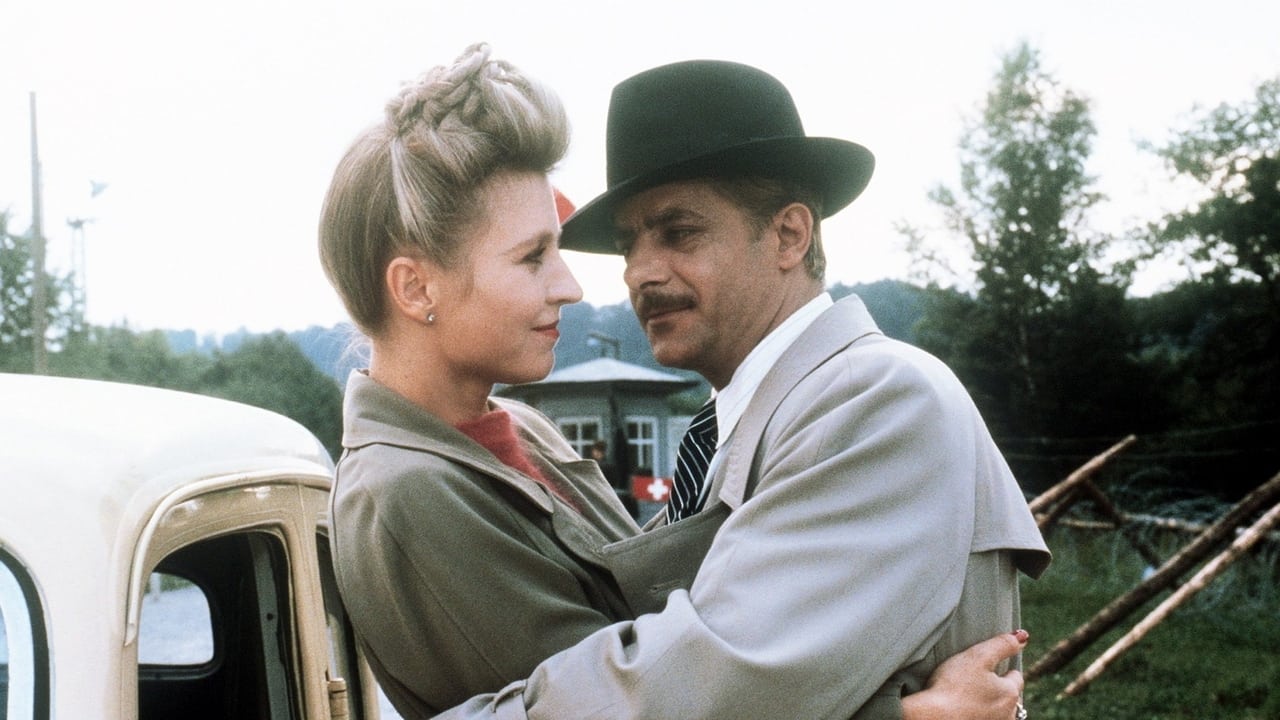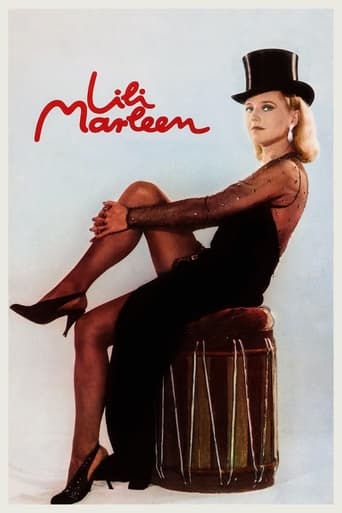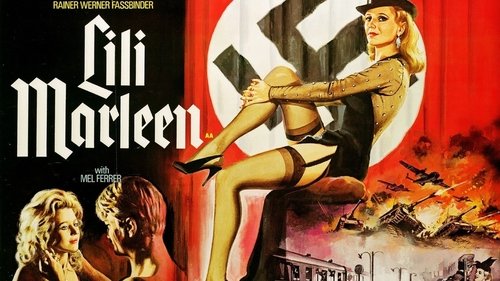




Good concept, poorly executed.
Brilliant and touching
Best movie ever!
The plot isn't so bad, but the pace of storytelling is too slow which makes people bored. Certain moments are so obvious and unnecessary for the main plot. I would've fast-forwarded those moments if it was an online streaming. The ending looks like implying a sequel, not sure if this movie will get one
View MoreWhere do I start? Per the title of this film I expected some degree of authenticity, in the end I was severally let down. This is not the story of Lale Andersen or the song Lili Marlene, rather it is a Hollywood (or pick your film making hub) story loosely based on some real life characters. I should have had a clue when I heard a heavy English accent giving the intro to the movie in German; the blood red text (title, artists) should have been the 2nd clue. The story line is contrived (Lale was not tricked out of Switzerland Rolf Liebermann's parents, there is no info that Liebermann helped smuggle Jews from Germany, the original song had been recorded outside of the control of the NS regime not while under control, the record played at the station was picked up in Vienna while a Lt. was there on leave, etc, etc) the costumes are poor and incorrect for the time frames (SS black uniforms used every where from border guards to staff positions, these went away from daily use once the war started, etc), the characters are stereo types (SA bullies in a club once they were essentially out of power). Don't waste your time.
View MoreMany critics have felt offended that R.W. Fassbinder has portrayed both protagonist Wilkie and the Nazis in this movie in a human-like manner. Connoisseurs of other Fassbinder films, however, will realize that "Lili Marleen" (1981) belongs to Fassbinder's "women movies" like "The Marriage of Maria Braun" (1979) and "Lola" (1981). Fassbinder was convinced that "stories can be told much better with women than with men", because, according to Fassbinder, while men usually fulfill their determined roles in society, "women are capable of thinking in a dialectic manner". Dialectics, however, means that there is not only a thesis and its antithesis like usually in our black-and-white world, but a synthesis where the oppositions coincide. Moreover, dialectic means that because of the third instance of synthesis the absolute opposition of the difference between thesis and antithesis is abolished. Concretely speaking: Starting from a dialect point of view and portraying the fascist state, the underground fighters must necessarily use the basic means like the rulers do, and between offenders and victims there is thus a chiastic relation, so that every offender is also victim and every victim is also offender. Fassbinder has illustrated this abstract scheme, that transcends classical logic, in his play "The City, the Garbage and the Death" (1975) which was filmed by Daniel Schmid under the title "Shadow of Angels" (1976).Therefore, approaching an a priori controversial topic like Nazi Germany, in a dialectic manner, the depiction of this time in the form of a movie gets even more controversial, especially for people who cannot or do not want to see that our recognition of the world is by far not exhausted with a primitive light-switch schema, but needs the third instance of synthesis as controlling instance of its opposite members thesis and antithesis. The mutual relationship between offenders and victims has to scrutinized, since it is simply not true that the offenders are the bad ones and the victims the good ones. In a synthetic viewpoint, the bad ones participate on the goodness as the good ones participate on the badness. They are mutually related. In a world-view based on classical logic, a relation between good and bad cannot even been established, and in an ethics based on this insufficient system of logic, the bad conscience of the survivors of Nazi Germany, feeling (illogically enough) responsible for the deeds of their ancestors, exclude the possibility of a relationship between the two extremes and thus a synthesis in the form a new evaluation based on this relationship as well. From Fassbinder's dialectic viewpoint, it follows that neither Lili Marleen nor Lola nor Maria Braun can be condemned for their "misuse" of the ruling system for their private purposes, because they don't misuse them, they just use them. In the opposite, since victims must repeat the actions of the offenders as the offenders must repeat the actions of the victims, because "good" and "bad" are no longer simple mirror images of one another like in two-valued logic, their strategies are legitimated by the chiastic structure of a logic that describes our world, that is not black and white at all, much better than a black-and-white logic.
View MoreStory of a song. And what song! In fact, the creation of Hans Leip and Norbert Schultze is the only character, a spell who creates existences, loves, tragedies with a sarcastic indifference. It is an obsessive music, soul of a ambiguous time of dreams and ideas intoxication, with old words and cruels ambitions.Certainly, it is a Fassbinder's lesson about values and lies, about rules of war and feelings, about small victims and sacrifice.Hanna Schygulla is gorgeous in a character's skin different of Lale Anderson or Marlene Dietrich but with the same art to describe the atmosphere of extincted space. In some moments I saw in parts of film elements of "Cabaret" Nazi song or "Satyricon" dances. It is normal: interpretation of song is not only piece of a show but rule of life. "Lili Marleen" is not the old "Das Lied eines Jungen Soldaten auf der Wacht" but hard of an universe, hypocrite, coward, frail.The final meeting between Willie and Robert is only seal of ordinary tragedy. To late, to far.
View MoreYes, there is such a thing, despite the fact that IMDb does not currently list it.This film is a clever examination of how hard it was NOT to become part of the Nazi system. Willie is a German singer, in love with a Swiss Jewish conductor. She returns to Germany to help her lover with the resistance, however his father - who disapproves of their relationship - has arranged that she will not be able to return to Switzerland. Stranded in Berlin, Willie is forced to use a Nazi connection just to get some work...and he just happens to be the newly appointed Cultural Director. So Willie is given the opportunity to perform and record 'Lili Marleen'. The song becomes a hit, and Hitler becomes a fan. I won't go into the rest of the plot, but be assured that there are twists and turns.By the end of this movie, you will not be able to get the song 'Lili Marleen' out of your head as it is repeated countless times. Believe me, I saw the film last week, and I am still singing it.
View More